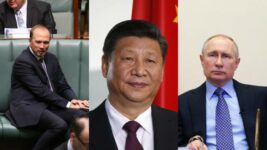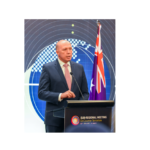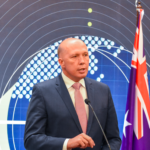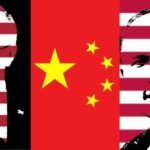World War Three, Anyone? Dutton, Beijing and the Ukraine Flashpoint

Right now, more than half of Russia’s armed forces are amassed along its border with Ukraine. The subject of weeks of speculation, Russian president Vladmir Putin denies he’s planning on invading the small country. However, western governments aren’t buying this assertion.
US president Joe Biden seems to consider the invasion imminent, although a US security advisor isn’t so sure. Washington has just deployed an additional 3,000 troops to Eastern Europe, after shifting 3,000 more in the region earlier this month.
Both the US and Australia warned their nationals late last week to leave Ukraine.
Early this month, Moscow and Beijing announced a new “no limits” partnership between the two nations. A joint 4 February statement specifically called out the recently established AUKUS alliance – between Australia, the US and the UK – as posing strategic concerns in the Asia-Pacific region.
While meeting in Melbourne last week, the foreign ministers of the Quad – the Quadrilateral Security Dialogue, which comprises this country, the US, Japan and India – met to display collective strength against Russia and China, and to deliberate upon extending its mandate.
Gunning for China
War on China talk has been mounting in this country over recent years. But it’s escalated significantly since Peter Dutton took over the defence portfolio last March, with the minister appearing in the press two months later, suggesting we were already on something of a war footing.
This was followed by prime minister Scott Morrison dropping it on the nation in September that it’s now a part of the AUKUS pact, which was necessitated due to “security challenges in the Indo-Pacific”, which is a veiled term pointing to a rising China.
Dutton announced early last week that Australia needs to step up its response to Beijing’s encroachments in the South China Sea, which involve building artificial islands and military bases on coral reefs. He said if the nation doesn’t take a stand, “we’ll lose the next decade”.
And the minister went as far as to state in parliament on Thursday that there’s “evidence that the Chinese Communist Party — the Chinese government — has also made a decision about who they’re going to back” in the coming federal election, that being Labor leader Anthony Albanese.
Step down, says Beijing
The ongoing war against China rhetoric coming from Canberra, along with the declaration of the Moscow-Beijing pact and the increasing tensions over a potential Russian land invasion of Ukraine, should be of concern to all Australians.
The Morrison government has purposefully made us a frontline aggressor against Beijing, whether that be from the spearheading of the AUKUS acronym, the ongoing posturing from Dutton, Morrison and home affairs secretary Mike Pezzullo to Australia hosting last week’s Quad meeting.
In delivering an 11 February joint statement, the Quad foreign ministers reaffirmed the alliance’s mission to address challenges in the Indo-Pacific, which involves working together with the ASEAN nations.
“We reiterate the importance of adherence to international law, particularly as reflected in the UN Convention on the Law of the Sea (UNCLOS), to meet challenges to the maritime rules-based order, including in the South and East China Seas,” the statement reads.
This reference to adhering to UNCLOS implies that Beijing has been breaching the treaty via its actions in the South China Sea.
China’s Foreign Ministry spokesperson Zhao Lijian has since responded, stating, “China believes that the so-called Quad group cobbled together by the US, Japan, India and Australia is essentially a tool for containing and besieging China to maintain US hegemony.”







